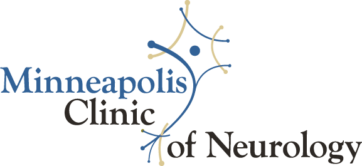The term, dementia, refers to a decline in intellectual functioning in such areas as memory, cognition (awareness) and judgment. Although there are many causes of dementia, the most common is Alzheimer’s disease, which accounts for about two-thirds of all dementia cases. Other less common causes of dementia are Lewy body dementia (having more hallucinations and features of parkinsonism), frontotemporal dementia (affecting personality and behavior earlier than memory) and vascular dementia (accumulative small strokes). The brain cells in Alzheimer’s patients die off because of various factors, including accumulation of unwanted material such as amyloid, formation of abnormal neurofibrillary tangles, decrease in levels of acetylcholine (a neurotransmitter chemical used by nerves to talk to each other) and other yet to be identified issues. While there is a small subset of families that have a strong genetic predisposition to the disease, the major risk factor for Alzheimer’s is aging. By age 75, the prevalence of Alzheimer’s is estimated at 15 percent and by age 85, it is around 35 to 50 percent of the general population. With our overall population aging, the incidence and prevalence of Alzheimer’s will definitely increase and place a greater burden on our medical system, nursing home use and family environments in the future. Alzheimer’s is a degenerative and progressive disease, for which we have yet to find an etiology or cure, but still can be treated/ameliorated by physicians.
Symptoms & Diagnosis of Dementia
A. Symptom possibilities
• Progressive, worsening memory (especially recent memory)
• Impaired function in activities of daily living (ADLs)
• Presence of behavioral dysfunction
• Difficulties with speech, planning and organization, recognition and motor activity
B. What to expect at your doctor visit and possible follow-up tests
1. A very detailed health history, family history, medical and neurological exam
2. Blood tests to look for potential metabolic diseases that cause cognitive impairment
3. CT or MRI scan of the head to rule out tumors, blood clots, strokes and other structural disorders
4. Possible neuropsychometric testing to help define the impairments more clearly
5. MCN Occupational Therapy can administer a Cognitive Performance Test (CPT), which has shown predictive validity for the ability to safely drive, and/or additional standardized measures
6. Occasionally brain wave testing and specialized blood and urine tests
C. In every workup for dementia, the main emphasis is to find treatable causes of the symptoms, although this is usually the exception rather than the rule.
Treatment of Dementia
A. FDA-approved medications
There is no “cure” yet for Alzheimer’s or the other causes of primary dementia. However, there are currently four FDA-approved medications being used that have definitely been shown to slow down the progression of the disease. These are:
1. Aricept/Donepezil
2. Exelon/Rivastigmine
3. Razadyne/Galantamine
4. Namenda/Memantine
The first three medications seem to help by partially blocking an enzyme that tries to get rid of acetylcholine in the brain, while Namenda is thought to affect the influx of excessive calcium into the brain cell itself to prevent over concentration. Some other medications are currently being tested that may become available in the next few years, but they still have to undergo further rigorous testing to assure efficacy and safety.
B. Other medications used
Many other “treatments” have been touted over the years, some with initial promise, but not with long-term scrutiny. These have included vitamin E, ginkgo biloba and estrogens.
C. Medications used for symptom management
There are other medications occasionally used for behavioral modification, sleeping aids and depression. Much of the treatment falls on the family to help maintain a calm and stable environment.
D. Occupational Therapy for Dementia Care: Occupational Therapists at the Minneapolis Clinic of Neurology have advanced training and experience in vision and neurological rehabilitation, and therefore we can offer assessments and interventions that assist in maximizing the safety and independence of those with dementia. We work with patients and their caregivers in all stages of dementia.
Alzheimer’s is a frustrating, progressive disease that affects the patient as well as the family. Neurologists, who specialize in treating disorders of the brain, such as Alzheimer’s disease, see and treat patients for the various forms of dementia on a daily basis.
Minneapolis Clinic of Neurology is a Champion Level Member of the Alzheimer’s Early Detection Alliance-Alzheimer’s Association.
For further information about Dementia and Alzheimer’s disease, click on the following links:
- Occupational Therapy for Dementia
- Alzheimer’s Association Minnesota-North Dakota Chapter
- Caring.com – information about senior care, caregiving and medical alert devices
